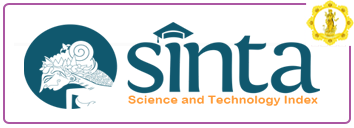POLA ASUH DALAM KELUARGA DAN PENGARUHNYA PADA PENDIDIKAN KARAKTER
DOI:
https://doi.org/10.25078/gw.v8i2.514Kata Kunci:
educating children, Hinduism, pattern of educating, Karo peopleAbstrak
This research looks for patterns of educating children to the residents of Pintubesi hamlet who adhere to Hinduism. Th e pattern of educating children is a process carried out to improve and support the physical, emotional, social, financial, and intellectual development of a child from infancy to adulthood. And the research finds out how to educate children in Hinduism and the similarities or differences that appear with adherents of other religions there. From initial observations, it is suspected that all residents with their respective religious backgrounds in Pintubesi have the same pattern in educating children. The study used a quantitative approach by triangulating interviews, distributing questionnaires, and discussing together. the results stated that as parents must be able to educate children to grow up to be good children (suputra) and useful for others. In addition, parents must also be able to instill positive values in children so that the child's growth pattern is in accordance with what is taught by Hinduism. From a cultural perspective, there is no visible difference in parenting among the Karo people in Pintu Besi Village, even though they have different religions.


















